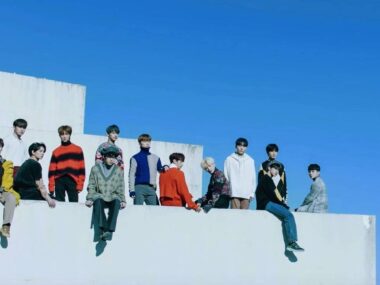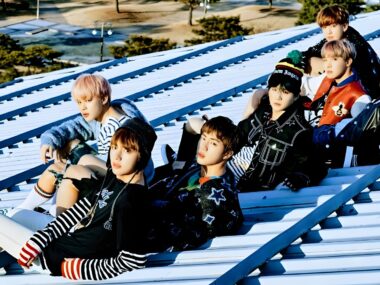Bang Si-Hyuk, founder of HYBE and executive producer behind BTS, has said before that he wants to take the “K” out of K-pop. Many fans mocked the idea while some wonder what that would even look like in practice.
At the 2025 MTV VMAs, it looked like Lisa, a Thai singer and actress, winning the Best K-pop award for Born Again. She beat out aespa’s Supernova, Stray Kids’ Chk Chk Boom, and even fellow BLACKPINK members Jennie, Rosé and Jisoo.
For a lot of fans, it didn’t sit right. Many were confused, even furious by the decision because Born Again is sung entirely in English. As far as we know, Lisa doesn’t have any Korean ancestry and both Doja Cat and Raye (both featured on the track) are Black. So how did Born Again even get nominated for Best K-pop Song?
Is Lisa Always K-pop, No Matter What?
One argument is that Lisa’s solo music is automatically K-pop because of who she is. She’s a member of BLACKPINK, one of K-pop’s most popular groups. Her first solo single, Lalisa, had a mix of Korean and English lyrics. In that sense, her releases are “K-pop-adjacent,” regardless of what language she’s singing in.
Yet, is it fair to give Lisa that label when her music doesn’t share the hallmarks of the genre? Or is it unfair to K-pop itself, an entire cultural ecosystem, when award shows categorize anything Asian as K-pop?
Is the “K” in K-pop Starting to Disappear?
Traditionally, many fans argue that a song counts as K-pop if:
- At least some of the lyrics are in Korean.
- It’s performed by Korean artists.
Those rules are slowly unraveling as the idol industry becomes more global. More idol groups are debuting with members of other Asian ethnicities. Groups like &TEAM and JO1 (both Japanese) are releasing Korean versions of their songs to promote on Korean music shows.
Does BTS’s three English singles count as K-pop since all the members are of Korean descent? Or is it just pop music that just happens to be sung by Korean artists? aespa released an English version of “Dirty Work.” Does changing the language mean it no longer counts as a K-pop song anymore? Clearly, language alone isn’t enough to define an entire genre anymore.
The West Doesn’t Care
Part of the problem is that institutions like MTV aren’t using “K-pop” to describe a musical style. They’re using it as an industry tag. Lisa qualified because of her ties to BLACKPINK. For them, that connection overrides details like the language she’s singing in, how the song is produced or who she collaborates with. In their eyes, it’s how the artist is marketed that matters.
That’s why Lisa now ties BTS for the most VMA wins in the Best K-pop category. Despite the fact that only one of her winning tracks actually counts as being K-pop.
K-pop as a System, Not a Sound
If we’re being honest, K-pop was never just about the music. What really defines it are industry practices. Its rigorous training system for idols. The synchronized choreography. The elaborate concepts and symbolic music videos. The ways fandoms engage with idols and the content they release. These elements are still unique to K-pop, even if the music itself now sounds like global pop.
The industry’s quest to broaden their appeal outside of Korea has thrown everything out of sync. K-pop is now a hybrid by design. It blends Western sounds, aesthetic and multilingual lyrics into a product meant for global consumption.
So What Is K-pop Now?
Maybe the better question is does K-pop need to cling onto one fixed definition?
The genre has always been evolving since its creation in the 1990s. Its ability to adapt, remix, and globalize itself is why it became so popular across the globe in the first place. If that flexibility turns into a complete loss of identity, it risks becoming just another word for “Asian pop music”.
The controversy over Lisa’s win is a sign that nobody in the West really knows what K-pop is and the industry has no one but themselves to blame. K-pop needs a new definition, a new signifier that’s universal. Without one, we’re going to have more debates and confusion over what counts as a K-pop song anymore.






